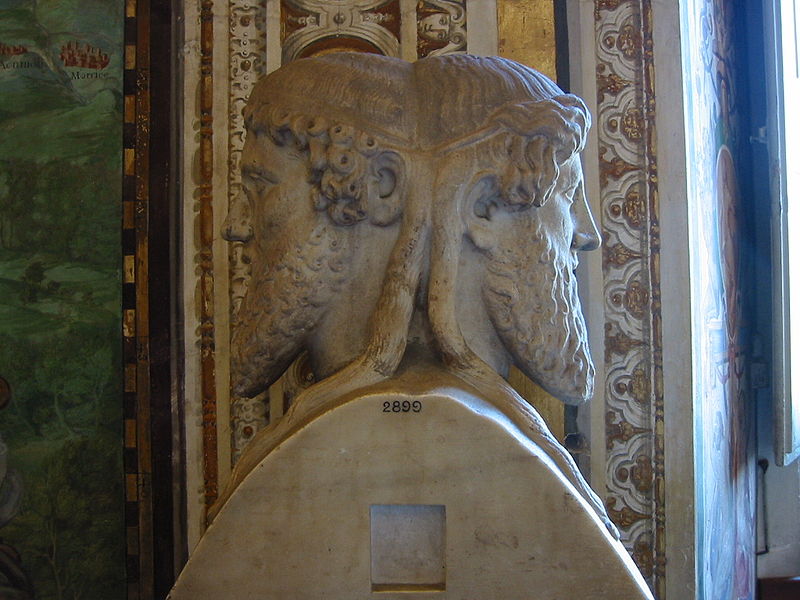

On the modern Gregorian calendar January 1 is celebrated as the initial day of the new year. Because the vast majority of the world has adopted the Gregorian Calendar, New Year’s Day is considered the only global public holiday.
Around the world this celebration is commemorated by shooting fireworks and rounds of ammunition into the midnight sky. January 1 has been incorporated into the Catholic Church as well as the Eastern Orthodox Church. However, celebrating this date as the beginning of the new year was established from a pagan perspective. To find the origins of this pagan holiday we need but only look at ancient Rome.
In 46 (A.D.) Julius Caesar, with the assistance of the Egyptian astronomer Sosigenes of Alexandria, revised the previously used calendar and established the new year in January. However, this particular calendar was quite unsound. For instance, the year 46 B.C., often referred to as the “Year of Confusion”, had 445 days and fifteen months. On February 24, 1582, Pope Gregory XIII introduced the calendar which is utilized throughout most of the known world today.
The month January was named in honor of Janus, the god of new beginnings, gates, and doors. In early Rome prior to the use of statues to represent their gods, the Romans worshipped Janus as a doorway. This is similar to how Vesta was considered “naught else but living fire.” Representations of Janus had two faces, one looking forward to the future and the other gazing backwards into the past. To Caesar it was appropriate for the new year to be in this month because it was the “doorway” to the new year. In honor of Janus Romans engaged in banqueting and licentious sexual activities.
January 1, Not Only Pagan But Also Arbitrary
When we consider God’s creation one must understand that the change or transition in seasons, and days, and years is observable. In Genesis 2 it is written:
Genesis 1:14-18 KJV
[14] And God said, Let there be lights in the firmament of the heaven to divide the day from the night; and let them be for signs, and for seasons, and for days, and years:
[15] And let them be for lights in the firmament of the heaven to give light upon the earth: and it was so.
[16] And God made two great lights; the greater light to rule the day, and the lesser light to rule the night: he made the stars also.
[17] And God set them in the firmament of the heaven to give light upon the earth,
[18] And to rule over the day and over the night, and to divide the light from the darkness: and God saw that it was good.
So according to what God has established, at evening begins a new day, a new moon is the beginning of a new month, and a new year begins in the spring when everything in nature is regenerated.
But according to man’s calendar, the new year begins at 12:00am on January 1. This date and time is totally arbitrary. We should ask the question, “What is new in the dead of winter”? In nature things are new in the springtime. When God delivered the children of Israel from Egyptian bondage He told Moses and Aaron, “This month shall be unto you the beginning of months: it shall be the first month of the year to you.”(Exodus 12:2). This was the month Abib which corresponds to the spring months of April and May.
April Fool’s Day
From the Encyclopedia Britannica:

“Some have proposed that the modern custom originated in France, officially with the Edict of Roussillon (promulgated in August 1564), in which Charles IX decreed that the new year would no longer begin on Easter, as had been common throughout Christendom, but rather on January 1. Because Easter was a lunar and therefore moveable date, those who clung to the old ways were the “April Fools.”

The majority of this excerpt was taken from the book Pagan Origins of Christian Holidays by Elisha J. Israel.
For more information watch the video: Should Believers Observe New Year’s Day (January 1st) by Brother Elisha from The HouseHold of Faith.
Click here to read the April Fool’s Day entry from the Encyclopedia Britannica.

More Stories
PANDEMIC UPDATE: ISRAEL, THE CHURCH OF JESUS!
The Mark of The Beast
Pope prepares for Mark of the Beast with consideration of ‘universal basic wage’